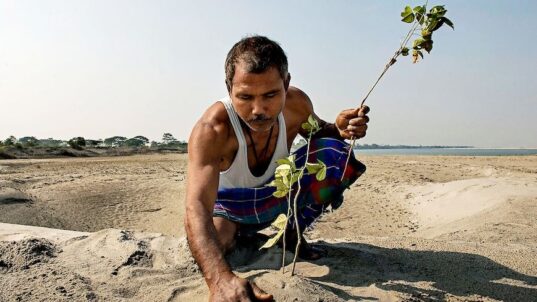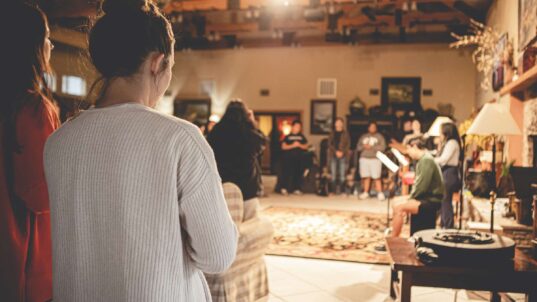
Image by Ri Butov from Pixabay
What are the big societal questions about the pandemic?
What do you think are the big questions we face with the Covid-19 pandemic? What questions might we have to answer to emerge from the pandemic? Think of the biggest issues or concerns we might need to address. This was the focus of the third of four Virtual Concerts and Conversations. You’ll find a summary of the participants’ thoughts below. A lot of these are overlapping or interrelated. What would you add? What might we be overlooking?
Want to share your ideas and connect with others on these issues? You can sign up here for the fourth Conversation on May 14, 12:30-2:00 pm EDT (the first session notes are here and the second session notes are here). As always with this series, we’ll start with a live-streamed musical performance and then break into small-group facilitated conversations. The series, conducted via Zoom, is a collaboration of Culture Saves, the DC Office on Aging, IONA, and the Interactivity Foundation.
Envisioning a New Normal or a Better Normal
- What’s next? What might be the new “normal” and how can we adapt to it?
- How can we imagine and create a new “normal” that is, or leads us to, a better world? How do we make this transition to a better world?
- The pandemic has occasioned some good things: helping people rebalance their lives, focusing on the importance of healthy social connections, focusing on prioritizing people over money, focusing on simpler pleasures and being in the moment, lowering pollution, etc. How do we build on these or carry these insights forward to creating a new normal that is better than the old?
- How can we foster a more caring society, locally, nationally, and internationally, that recognizes our interdependence and looks out for others, in order to emerge from the pandemic?
- How do we prioritize and sustain the best and essential aspects of humanity and our civilization (our “better angels,” the arts, culture, our connection to the natural world) for a new normal that is a better world?
- How do we best balance self-interest and societal interests, or the good of the whole, whether locally, nationally, or globally?
- How do we better balance national interests and interests of the planet or humanity internationally?
- How do we re-weave the fabric of a divided society and build durable social relationships in a time of physical distancing? How might do we do this locally, nationally, or even globally?
Political and Economic Transformation
- The pandemic is too big for individuals to solve piecemeal, so how can we get governance that is responsive to the needs of the whole population, focusing on the good of the people as a whole?
- Our political-economic system has left too many people behind and it has been unable to meet the demands of the pandemic crisis. How can we imagine and enact political-economic reform so we have a system that works for the people universally and doesn’t leave so many people vulnerable?
- The pandemic shines a light on the inequalities in our society and our economy. How can we create a more just and equitable society as we rebuild our society to emerge from the pandemic?
- The pandemic reveals that as a society we’re only as strong as those who are most vulnerable. How can we better remedy our society’s inequalities in financial resources, healthcare access, food, education, communication, housing, etc., in order to make a healthier, more just, and more resilient society? How might we better address the needs of the most vulnerable (older adults, immunocompromised, economically insecure, the homeless, migrants, undocumented residents, etc.)?
International and Global Dimensions
- The pandemic reveals our global human interdependence and that humanity is only as strong as those most vulnerable across the globe. How can we better remedy global inequalities, healing growing divisions between global “haves” and “have-nots,” in order to make humanity healthier overall?
- The pandemic has led to the shut-down of national borders. It has also shown humanity’s international interdependence: no one nation can solve this on its own. How can we foster robust international coordination and leadership to address the pandemic? How might we solve global issues at a global level?
Leadership and Moving Forward
- How do we create the capacity now to address the next pandemic—and what would this look like, locally, nationally, and internationally?
- How can we get competent political leadership that is guided by facts, taking a science-based approach to manage the pandemic, and focusing on the good of the whole (rather than on economic gain for the few)?
- How will we develop trust in our political leadership and trust that our government is acting in a fact-based way for the good of the whole population?
- How will we decide it’s safe to end the lockdown and go back to “normal”?
- How will we develop trust in scientific information to guide our approach to the pandemic and to emerging from the lockdown?
- How can we get trusted information about public health and safety to guide our actions to deal with the pandemic and to emerge from it?
- The pandemic has revealed the power of grassroots level community action and the importance of robust social connections in our local communities. How can we build capacity for non-governmental, person-to-person, responses to crises like the pandemic? How do we build on successes in this area for a new normal that is better than the old?
- How do we avoid negative or unproductive responses to the pandemic, such as those that only work to benefit the “haves,” those that foster social divisions, those that foster nationalism and foster international division, and those that foster scapegoating rather than positive action to address crises?



